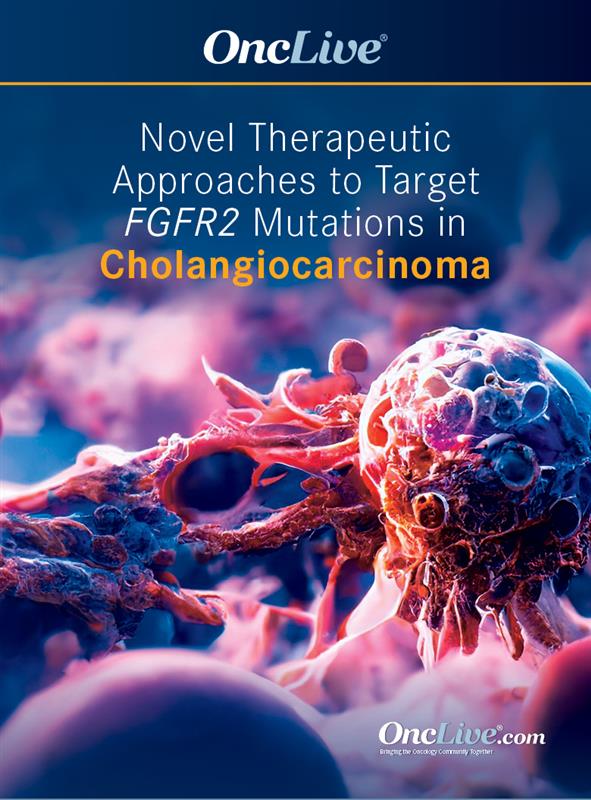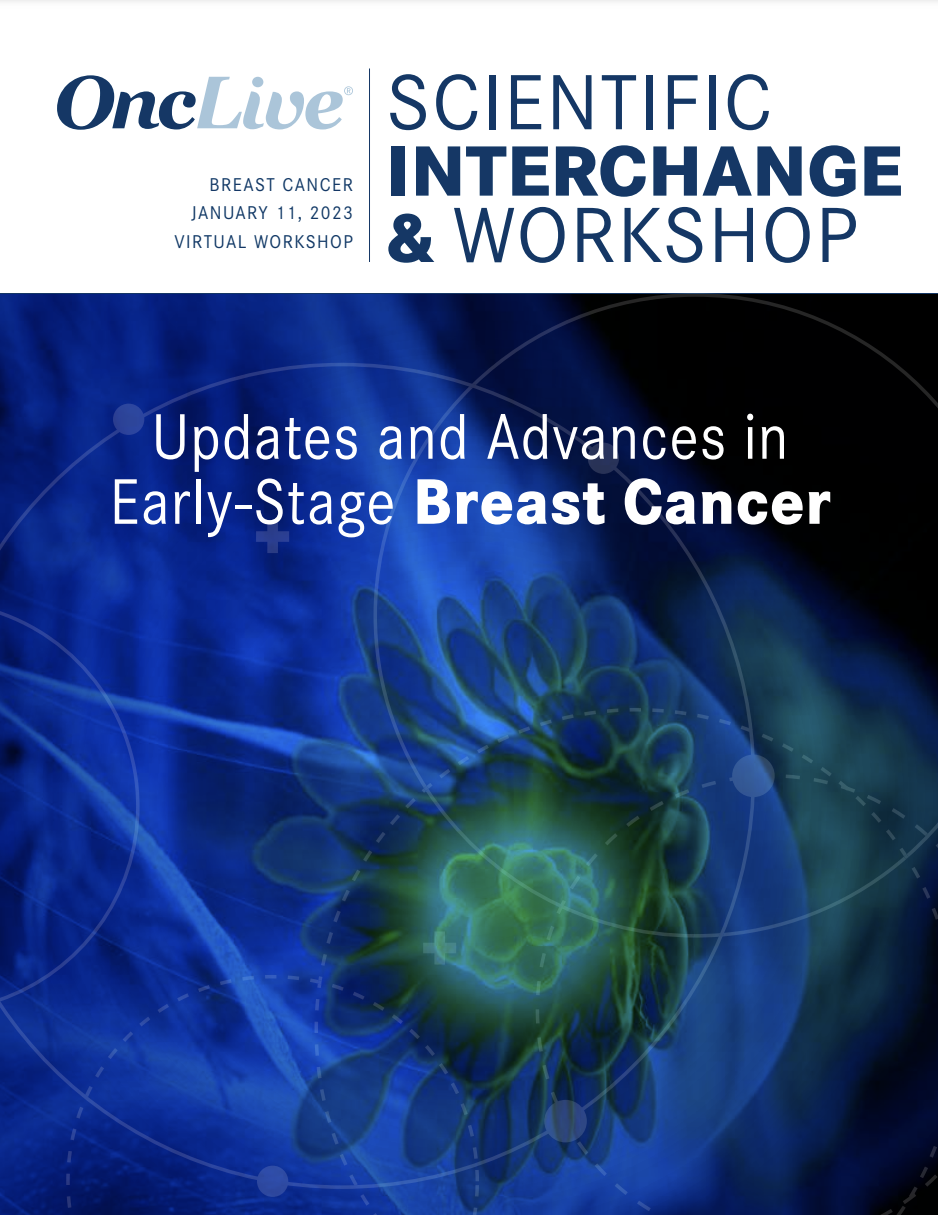Publication
Video
Supplements and Featured Publications
Dr. Goyal on the Potential Benefits of RLY-4008 in FGFR2+ Cholangiocarcinoma
Author(s):
Lipika Goyal, MD, discusses the potential for RLY-4008, an agent under exploration in patients with cholangiocarcinoma harboring an FGFR2 rearrangement or fusion.
Lipika Goyal, MD, physician, Massachusetts General Hospital, assistant professor of Medicine, Harvard Medical School, discusses the potential for RLY-4008, an agent under exploration in patients with cholangiocarcinoma harboring an FGFR2 rearrangement or fusion.
RLY-4008 is selective for FGFR2, and the majority of FGFR alterations in cholangiocarcinoma are FGFR2 fusions, Goyal says. Safety and tolerability are a concern when targeting FGFR, Goyal explains. However, since RLY-4008 selectively inhibits FGFR2, some of the adverse effects that are associated with targeting FGFR1/3 can be avoided, Goyal adds.
The FDA has approved several FGFR inhibitors for various cancers, including ponatinib (Iclusig), pemigatinib (Pemazyre), and infigratinib (Truseltiq), which all target their respective FGFR alterations, Goyal adds. For example, in May 2021, infigratinib was approved for the treatment of patients with previously treated locally advanced or metastatic cholangiocarcinoma harboring an FGFR2 fusion or rearrangement.
Hyperphosphatemia is typically associated with FGFR inhibitors; however, lower rates have been observed with RLY-4008, according to Goyal. Additionally, RLY-4008 has been found to overcome acquired resistance mutations in the FGFR2 kinase domain that have been known to arise with other FGFR inhibitors, leading to a potential prolonged duration of response, Goyal concludes.
































%20(2)%201-Recovered-Recovered-Recovered-Recovered-Recovered-Recovered-Recovered-Recovered-Recovered-Recovered-Recovered-Recovered-Recovered-Recovered-Recovered-Recovered-Recovered.jpg?fit=crop&auto=format)
%20(2)%201-Recovered-Recovered-Recovered-Recovered-Recovered-Recovered-Recovered-Recovered-Recovered-Recovered-Recovered-Recovered-Recovered-Recovered-Recovered-Recovered-Recovered.jpg?fit=crop&auto=format)
